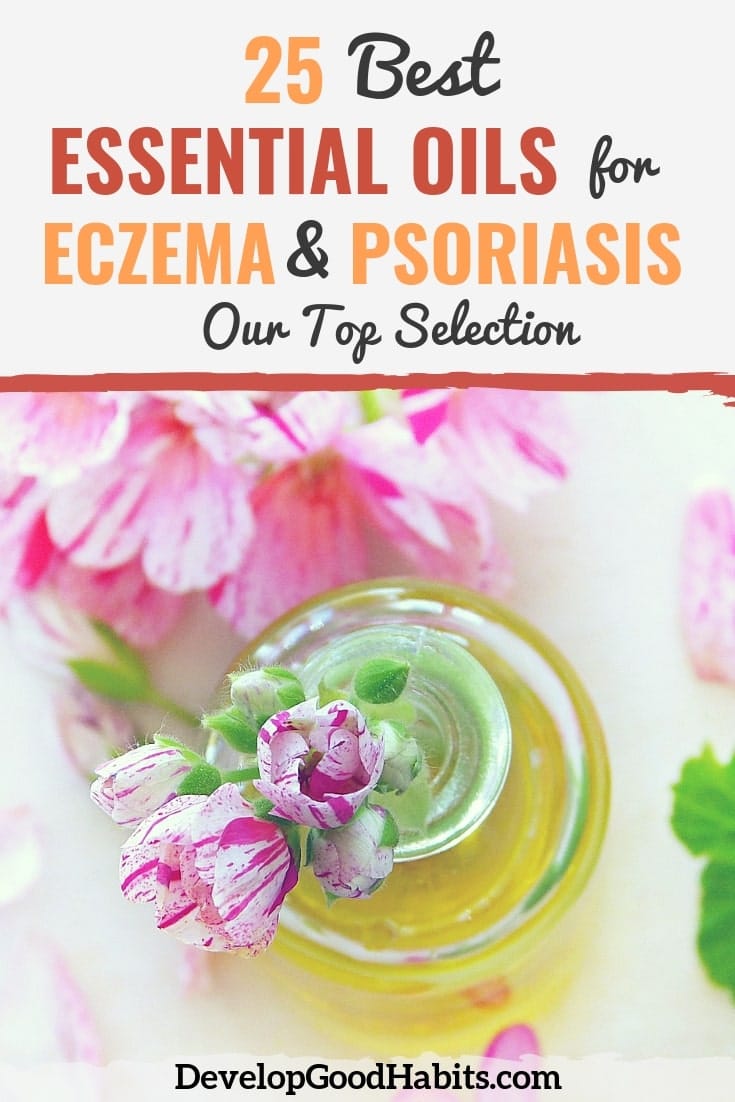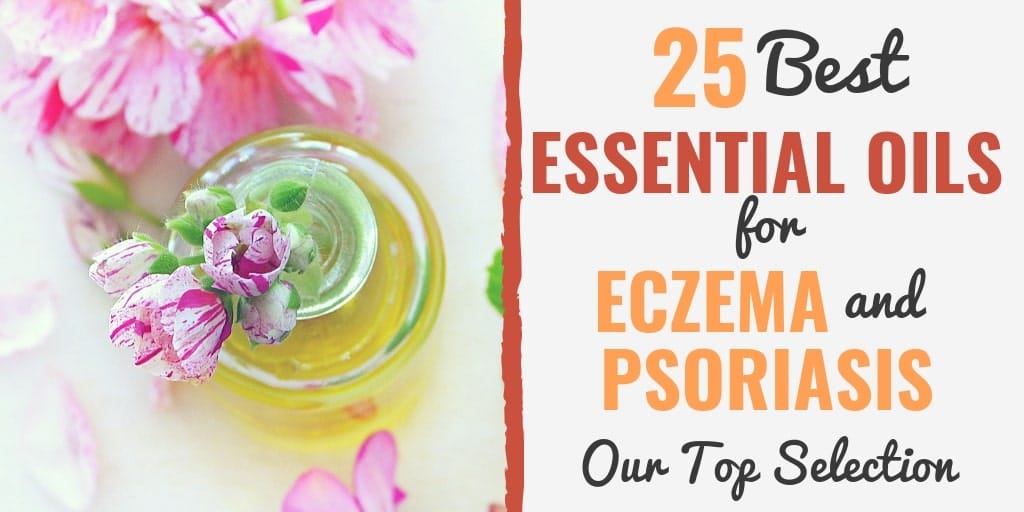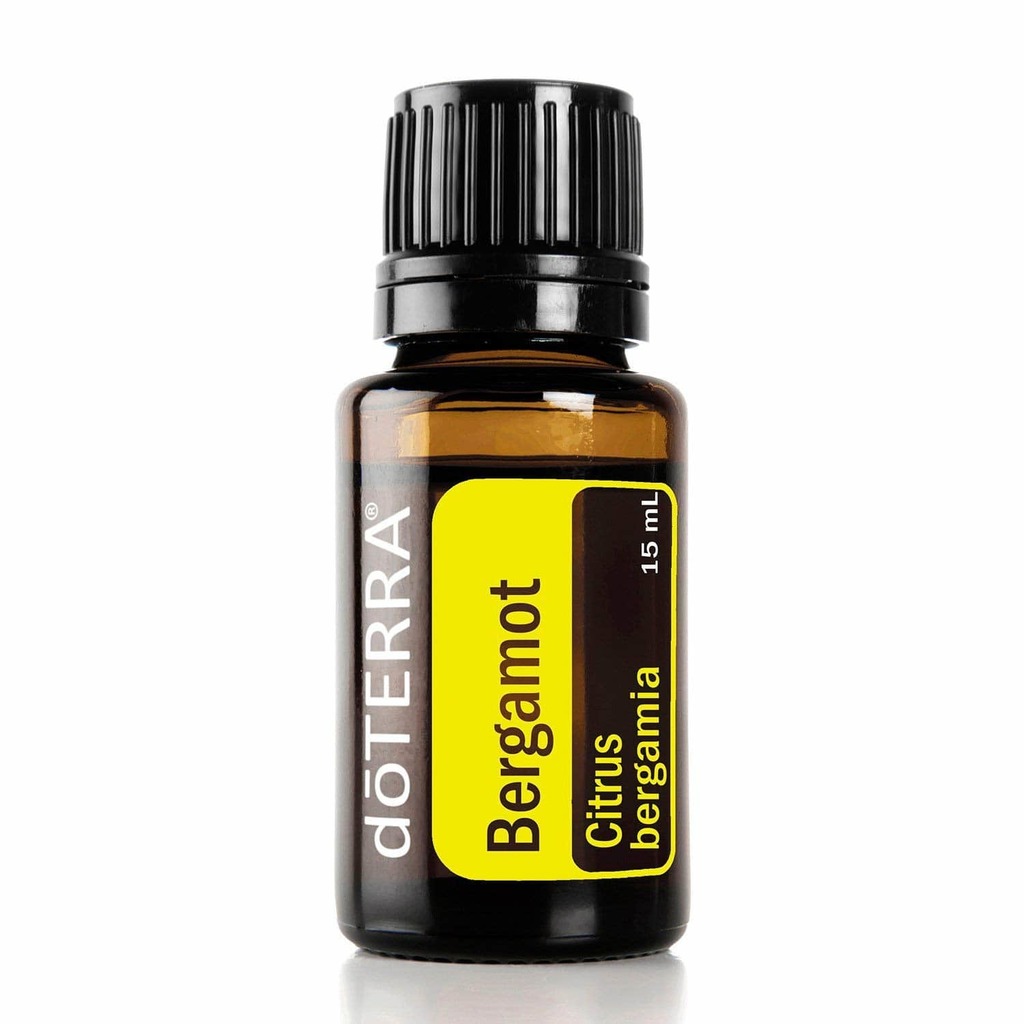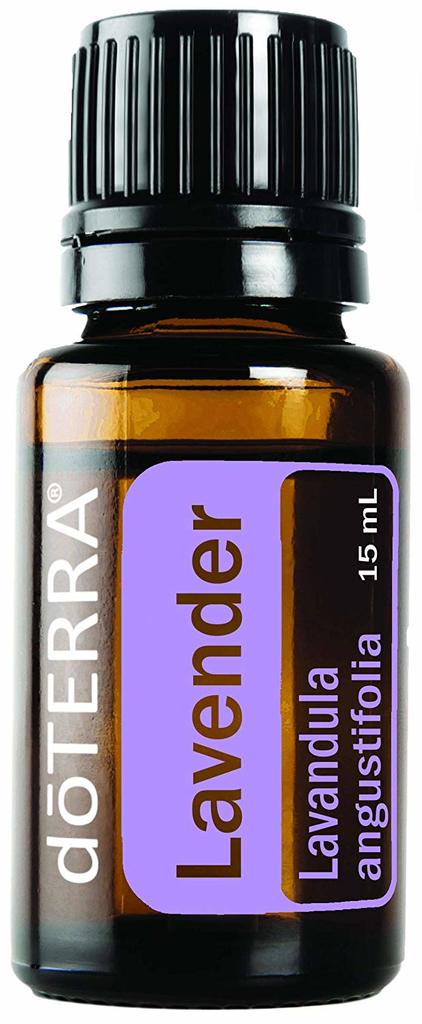There might be affiliate links on this page, which means we get a small commission of anything you buy. As an Amazon Associate we earn from qualifying purchases. Please do your own research before making any online purchase.
Did you know that eczema and psoriasis affect about 42.5 million Americans? If you are suffering from one of these diseases, then you know about the pain and discomfort that is associated with them. So, what do you do to treat it?
While there are a lot of prescription drugs on the market for these skin disorders, none of them cure the issue completely, and they all have side effects. If you are still looking for some relief, it is a good idea to try some essential oils.
To treat eczema, an increasing number of people are turning away from conventional Western medicine and adding essential oils to their daily regimen. These oils act as a holistic healing agent that looks at the bigger picture of the skin conditions.
Essential oils have anti-inflammatory and stress-reducing properties that can help promote healing and create a lasting change to improve your skin for good. Here, we will talk about the 25 best essential oils on the market today to treat eczema and psoriasis.
Don't have time to read the entire post?
Here are our top choices for essential oils for energy (plus their Amazon links)!
 |
Angelica Essential Oil | CLICK HERE FOR PRICE |
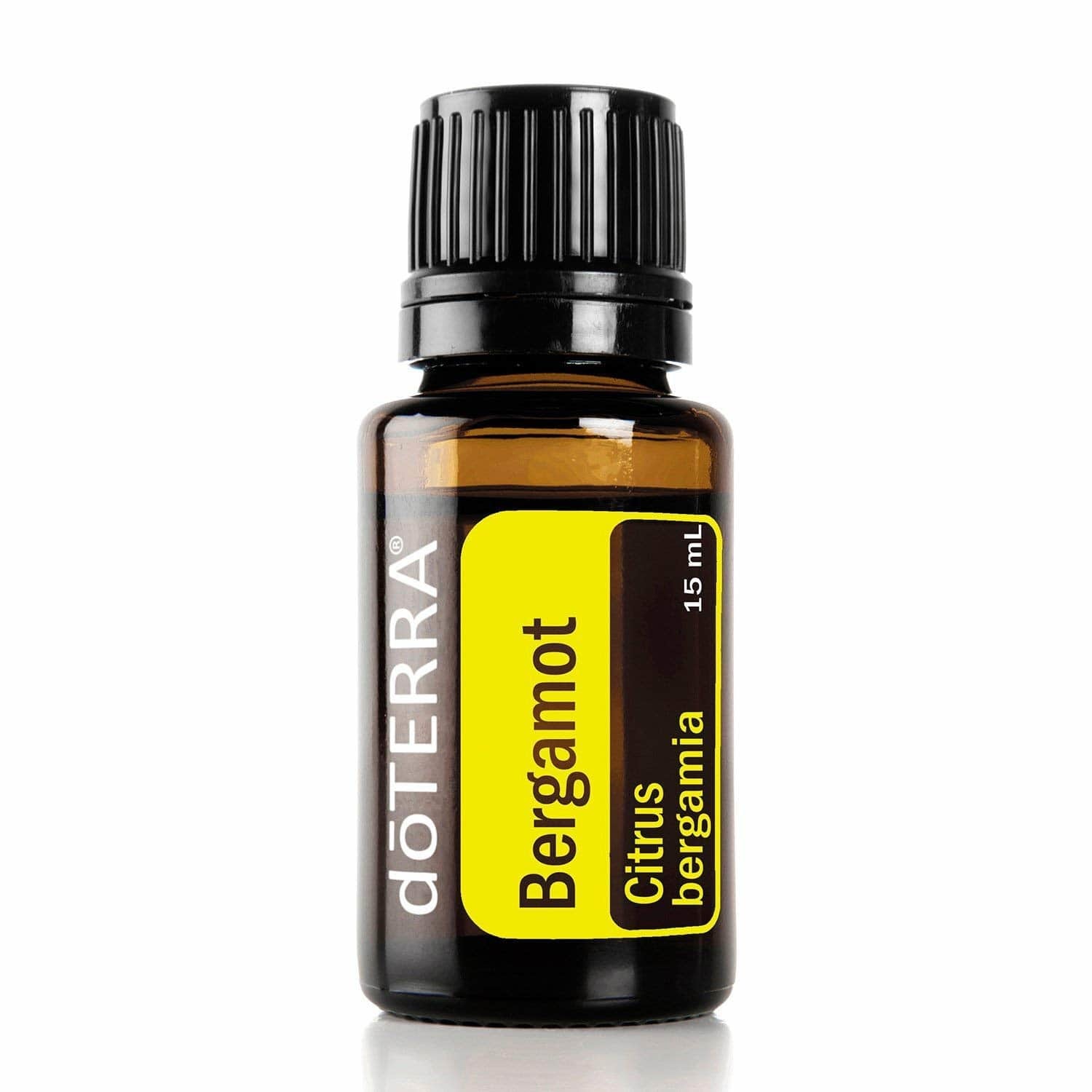 |
Bergamot Essential Oil | CLICK HERE FOR PRICE |
 |
Cajeput Essential Oil | CLICK HERE FOR PRICE |
 |
Chamomile Essential Oil | CLICK HERE FOR PRICE |
 |
Copaiba Essential Oil | CLICK HERE FOR PRICE |
 |
Eucalyptus Essential Oil | CLICK HERE FOR PRICE |
 |
Geranium Essential Oil | CLICK HERE FOR PRICE |
 |
Helichrysum Essential Oil | CLICK HERE FOR PRICE |
 |
Juniper Essential Oil | CLICK HERE FOR PRICE |
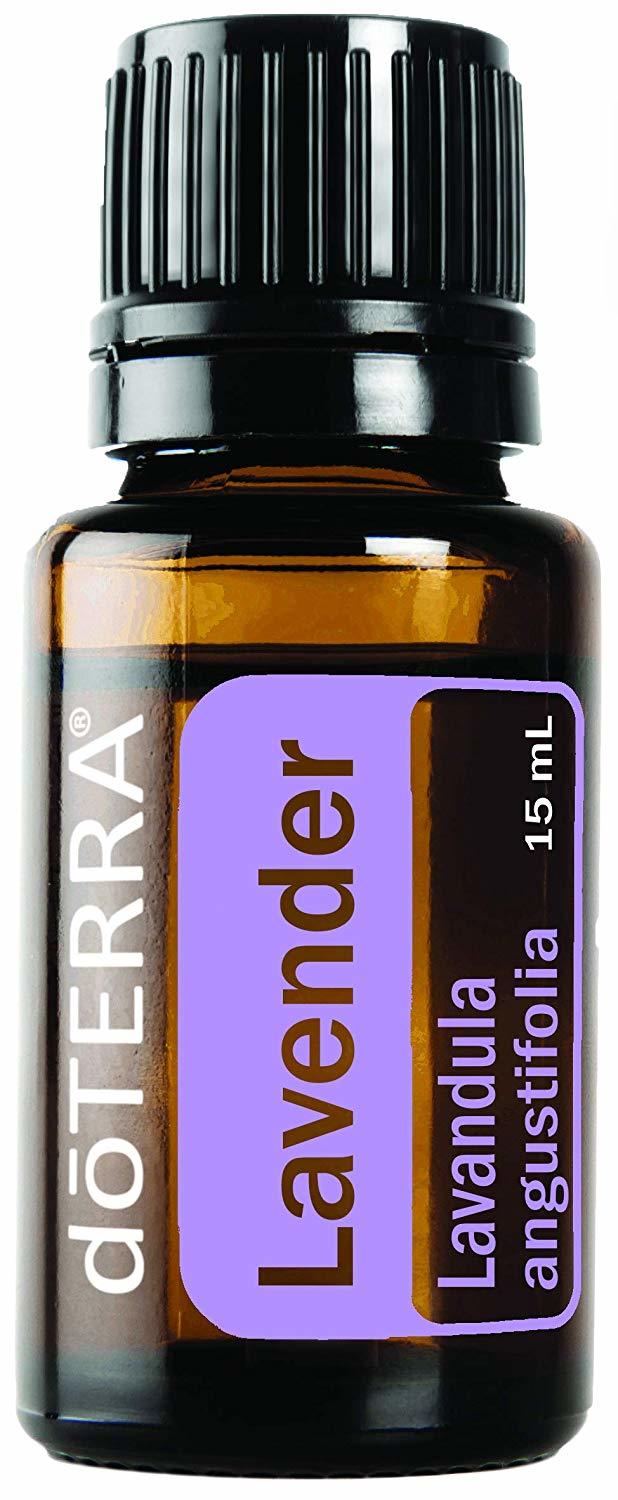 |
Lavender Essential Oil | CLICK HERE FOR PRICE |
 |
Myrrh Essential Oil | CLICK HERE FOR PRICE |
 |
Neroli Essential Oil | CLICK HERE FOR PRICE |
 |
Patchouli Essential Oil | CLICK HERE FOR PRICE |
 |
Peppermint Essential Oil | CLICK HERE FOR PRICE |
 |
Rose Essential Oil | CLICK HERE FOR PRICE |
 |
Rosemary Essential Oil | CLICK HERE FOR PRICE |
 |
Sandalwood Essential Oil | CLICK HERE FOR PRICE |
 |
Tea Tree Essential Oil | CLICK HERE FOR PRICE |
 |
Thyme Essential Oil | CLICK HERE FOR PRICE |
 |
Andiroba Virgin Oil | CLICK HERE FOR PRICE |
 |
Boragi Seed Oil | CLICK HERE FOR PRICE |
 |
Coconut Oil | CLICK HERE FOR PRICE |
 |
Evening Primrose Oil | CLICK HERE FOR PRICE |
 |
Jojoba Oil | CLICK HERE FOR PRICE |
 |
Tamanu Oil | CLICK HERE FOR PRICE |
Why Use Essential Oils to Treat Eczema and Psoriasis?
Using an all-natural approach to treating eczema and psoriasis can not only help soothe the skin, it can also help manage emotions that may trigger a flare-up.
A lot of oils are known to be helpful due to their detoxifying effects, moisturizing ability, stress-relieving properties, and antibacterial properties. Research has shown that specific oils can significantly decrease the pain associated with these skin disorders.
How to Use Essential Oils to Treat Eczema and Psoriasis
Eczema
Eczema is a complex inflammatory skin condition that causes very itchy patches of skin that can be dry, flaky, or oozing. Some immunological abnormalities are associated with eczema, which is also known as atopic dermatitis. Suspected causes of eczema include allergies, genetics, irritation, parasites, stress, and lifestyle issues.
To use essential oils for treatment, you should focus on anti-inflammatory and soothing agents, while keeping in mind that treatment will be very individualized.
Essential oils that have sesquiterpene hydrocarbons and alcohols, especially alpha-bisobolol, are best for the treatment of eczema. When botanical extracts are also included, the therapeutic benefits and soothing qualities are enhanced.
Some common botanical extracts include vegetable and fruit oils, butter, and herbs. These contain healthy omega-6 and omega-3 fatty acids and are great for soothing irritated skin.
Psoriasis
Psoriasis can be mild or severe, and can cover the body and even require emergency treatment. This chronic skin disease consists of red patches that come together to form plaques that have distinct borders. This condition makes skin cells proliferate quickly, leading to flare-ups of psoriasis.
Psoriasis can be triggered by stress, and likely has a hereditary component. Research also shows that dietary deficiencies of sulfur and essential fatty acids can lead to psoriasis. Psoriasis is also related to an overall poor diet, immune deficiencies, and emotional troubles.
Treatment for psoriasis with essential oils is similar to the treatment of eczema. The only difference is the incorporation of more essential oils that can soothe the nerves, especially oils that contain a high amount of esters.
Treatment Options
1. Fill your bathtub with warm water.
While your bathtub is filling up, combine 1 tsp of your oil of choice with 1 cup of finely ground rolled oats. Add this mixture to your bath and mix it around so it is evenly dispersed.
Allow yourself to soak in the bath for half an hour, and during this time, gently rub the oatmeal mixture onto your skin. Do not scrub your skin harshly. Rather, just give it a gentle exfoliation.
2. Make a hand bath or foot bath.
Add 1 tsp of your essential oil to a basin of warm water and stir it so it is evenly mixed in. Soak your affected area for 20 minutes while simultaneously massaging your skin to increase blood flow to the area.
3. Massage.
After you get out of the shower, and while your skin is still slightly wet, massage your oil of choice all over your body or on your affected areas.
4. Topical application.
Use your fingertip to rub your oil of choice gently over any affected areas a couple of times throughout the day. If the oil causes you discomfort, add some carrier oil so it is more diluted.
25 Best Essential Oils for Eczema and Psoriasis (Our Selection for 2024)
1. Angelica Essential Oil
Angelica is widely used as a flavoring agent in foods and drinks due to its sweet and spicy aroma. However, it also has plenty of health benefits. It works as an anti-spasmodic, battling symptoms such as cramps, muscle aches, coughs, diarrhea, and convulsions. It also aids in digestion and clearing the body of toxins.
It can help reduce fevers, and also acts as a relaxant for the body. Angelica is also good for the lymphatic system, and can effectively treat bronchitis, headaches, asthma, infections, anemia, and psoriasis. Due to the fact that it contains terpenes, this is also a great anti-seizure aid.
PROS
- Blends very well with other oils.
- Helps maintain the proper balance of acids in the stomach.
- Has a calming, deep woody scent.
CONS
- This oil should be avoided by pregnant women and people with diabetes.
- May lead to skin irritation.
- High doses may cause hyperactivity in the nervous system.
2. Bergamot Essential Oil
Bergamot has been used for centuries for a variety of uses. It comes from a delicate citrus plant that is difficult to grow because it requires a specific climate and soil to stay healthy. This oil has long been used by Italians to help reduce stress and soothe skin conditions.
Bergamot fruit can be eaten as a dessert or enjoyed with coffee because it has a sweet and enjoyable taste. This unique citrus oil can be uplifting and calming at the same time, which makes it great for reducing anxiety and depression.
Bergamot can also be used as a cleanser because it is purifying for the skin and can calm irritations. Bergamot can be diffused, used topically, or even added to your favorite beverage. Additionally, you can use it as a massage oil or add a drop or two to your skincare cleanser.
PROS
- This is a very potent oil, so you do not have to use a lot.
- The scent gives you energy without giving you jitters.
- This is a great oil to use if you want to soothe a cold.
CONS
- If you put this oil directly on your skin, it may cause irritation.
- This oil should not be used on children.
- You should not use this oil before going out in the sun.
3. Cajeput Essential Oil

Cajeput is related to tea tree oil, and has an energizing scent. It is mainly used for occasional skin irritation on the lips, but can also be used to combat cramping due to menstruation.
This is also a great oil to use to help relieve symptoms that may be caused by a seasonal illness. If you dilute Cajeput oil, it may help soothe insect bites.
PROS
- Great for muscle rubs.
- Has a very pleasant scent.
CONS
- Comes out of the bottle quickly.
- This oil is a bit pricier than others.
4. Chamomile Essential Oil

There are a lot of benefits from chamomile essential oil. It can be diffused or applied directly to the skin to help calm the mind, improve digestion, reduce inflammation, and treat skin conditions.
Roman chamomile oil is an effective aid to help relieve anxiety and symptoms of depression. It can also help fight insomnia and allow users to get a good night's sleep. It can promote heart health and, most importantly, has cancer-fighting properties.
PROS
- Has many health benefits.
- Gentle enough for children to use.
- Helps improve skin.
CONS
- Bottles tend to leak.
- Oil is not very strong, so you have to use several drops.
5. Copaiba Essential Oil

Copaiba essential oil allows the user to breathe easier, and is effective in treating asthma, bronchitis, and congestion. Copaiba works by clearing space in your lungs, which allows you to breathe easily.
In addition to helping you breathe, Copaiba also can help relieve muscle aches and soothe skin abrasions such as acne and athlete's foot. It smells similar to honey, with the addition of hints of woodiness.
Historically, this oil has been used due to its anti-tumor and decongestant properties. The tree is native to Brazil, grows up to 100 feet tall, and has yellow flowers and reddish fruit. Resin is taken from these trees when holes are drilled into the trunk, which leads to the acquisition of the oil.
PROS
- Has an impressive seven-year shelf life.
- Dilution is typically not required.
- Great for use in baths.
CONS
- The dropper bottle tends to drip.
- The oil is thin and comes out quickly.
6. Eucalyptus Essential Oil

Eucalyptus trees, also known as “gum trees,” are in the evergreen family. Eucalyptus oil works as an effective treatment for respiratory function, and it is also a soothing massage oil.
Eucalyptus is also purifying for the skin, and can also be used for cleaning surfaces and air fresheners.
Eucalyptus is also a great oil to have on hand if you need to reduce muscle tension and overwhelming feelings. It is often used in mouthwashes to help freshen breath and promote oral health.
If you combine this oil with others, it creates an effective DIY cleaning solution for your house. Some also love to add a few drops to their unscented moisturizers for skin rejuvenating benefits.
PROS
- This is a great oil for kids to use.
- Natural way to relieve coughs and sore throats.
- Its crisp smell is perfect for cleaning.
CONS
- This oil is a bit thin, so it comes out of the bottle quickly.
- The bottle tends to crack easily.
7. Geranium Essential Oil
This oil is made with strict standards of quality and is derived from the finest sources. Steam is distilled from the leaves of the geranium plant, creating a high-quality essential oil with no fillers.
This oil has a fresh and floral scent that is pleasant and known for its therapeutic properties. It is great for skincare, reproductive health, and tension relief. It can be applied topically by itself, or added to your favorite unscented lotion for relief. This is a high-quality and gentle product that is one of the best on the market for alleviating tension.
PROS
- This is a harmonizing, uplifting, and gentle oil.
- Has a sweet, yet subtle, scent.
- Great oil to mix with other calming oils.
CONS
- Some find that the scent is overpowering.
- Has to be diluted.
8. Helichrysum Essential Oil

Helichrysum essential oil comes from a natural medicinal plant, and has many different health benefits because of its anti-inflammatory and antioxidant properties.
It has been shown to lower inflammation due to several mechanisms, such as inflammatory enzyme inhibition, free radical scavenging, and corticoid effects.
Modern studies have confirmed what some populations have known forever: helichrysum essential oil has certain properties that make it an antioxidant, antifungal, antibacterial, and anti-inflammatory. Because of this, it can be used in many ways to boost health and keep diseases at bay.
Some of its most common uses include the treatment of wounds, helping cure infections, reducing digestive problems, and supporting nerve function and cardiovascular health.
PROS
- Great for sunburn relief.
- Natural cure for candida.
- Can help prevent multiple sclerosis.
CONS
- Some people do not find this oil to be effective.
- Diluted oil, so you have to use a lot.
9. Juniper Essential Oil

Detoxifying is a very popular idea these days, as the world is filled with toxins that people want to remove from their bodies. Juniper essential oil is something that you can add to your body to help with detoxification from eating junk food and exposing yourself to environmental toxins.
This oil also has a dramatic and positive effect on the skin. It has a piney and fruity smell that can help nourish and restore the nervous system and increase blood circulation. It also helps to calm the body and the mind.
Juniper fruit is actually not a berry—it is derived from the juniper cone, which takes three years to fully mature. This evergreen bush can grow up to 25 feet high, and sprouts yellow and green cones. There are over 50 species of juniper, and some can live up to 2,000 years.
The oil is obtained through steam distillation of the berries and twigs of the plant. The essential oil has therapeutic benefits, with a sweet and slightly fruity scent.
PROS
- Has a shelf life of two years.
- Has a very fresh smell.
- A little goes a long way.
CONS
- Not for internal use.
- Some people find this oil has an artificial smell.
- Cannot be applied directly to the skin.
10. Lavender Essential Oil
Lavender essential oil can eliminate nervous tension, disinfect the skin, relieve pain, enhance blood circulation, and improve respiratory problems. Many people use lavender to help induce sleep, and to sleep throughout the night.
It is a relaxing oil that people often use to replace modern medical treatments for sleep. It also helps to treat stress and anxiety.
One of the best characteristics of this oil is its anti-inflammatory properties. Not only can it help reduce skin problems such as acne, it can also help treat eczema and boost overall immunity.
PROS
- Can be taken with you to freshen you car or office.
- Can be used on children to help them fall asleep.
- More potent than other brands.
CONS
- Should be avoided by pregnant women.
- This oil causes some people to be nauseous or have an allergic reaction.
- This oil should not be ingested.
11. Myrrh Essential Oil

Myrrh is an ancient healer for several ailments and symptoms. This remarkable essential oil has a woody and smoky smell. It helps to protect against signs of aging (such as wrinkles), and it speeds up the healing of wounds and other skin issues.
Myrrh has a great effect on both athlete's foot and eczema. It has been used for thousands of years as an agent in helping with many things ranging from menstrual issues to weak gums.
In the West, it has often been used to help reduce asthma symptoms, treat colds, and relieve sore throats and ulcers. Myrrh resin goes through a steam distillation process to become an essential oil.
PROS
- Has a shelf life of seven years.
- Nervous system stabilizer.
- Can be mixed with other oils to create a great holiday mix.
CONS
- Should be avoided by pregnant women.
- May become fetotoxic.
12. Neroli Essential Oil

Neroli essential oil has a fragrance that can be described as a deep and intoxicating blend of citrus and floral scents. It comes directly from the flowers of an orange tree. The tree is native to eastern Africa and Asia, but it is also grown throughout the Mediterranean and in Florida and California.
Neroli essential oil has several benefits. It can help reduce inflammation and pain, reduce stress, decrease blood pressure, decrease cortisol levels, and reduce symptoms of menopause in women.
Additionally, it has antimicrobial and antioxidant properties. It can also make people appear younger due to its ability to repair skin. And it can even act as an anti-seizure medication. It is often used for homemade perfumes, in a diffuser, or as aromatherapy.
PROS
- This is a very high-quality oil.
- Has a very uplifting scent that children love.
- Some people even use this oil as a facial moisturizer.
CONS
- Bottle top tends to break.
- Scent is subtle.
- Drops come out very quickly.
13. Patchouli Essential Oil

Patchouli essential oil has many health benefits. Some of them include:
The insect repellent properties of patchouli oil have been known for a long time, but more health benefits of this essential oil have been discovered, making it one of the most versatile and popular essential oils on the market.
This oil is extracted from the leaves of the patchouli plant by steam distillation. It is often used to relieve depression, soothe inflammation, prevent infections, accelerate the healing process, stimulate blood flow, eliminate bad odors, fight fevers, and sedate hypersensitivity.
PROS
- Smell is not too overwhelming.
- Very high quality.
- Great for meditation
CONS
- Some would prefer if this oil came with a roller ball.
- This oil is a little diluted.
- Evaporates quickly.
14. Peppermint Essential Oil

Wintermint and spearmint join to make the peppermint plant, which has a high menthol content. Peppermint oil a better product than other mint essential oils, and is commonly used as an ingredient in toothpaste and chewing gum to promote proper oral hygiene.
Peppermint essential oil can also be used to soothe stomach pains and help you breathe easier. This oil is one of the most popular among essential oils.
Many people like to add a drop of peppermint essential oil to their water to create a natural mouthwash. Alternatively, you can put a few drops into an empty capsule and take it as a pill to relieve occasional stomach pain.
For a pick-me-up in the morning, you can add it to your morning smoothie. Mixing this oil with wild orange essential oil and frankincense will create an energizing combination that you can use throughout the day.
PROS
- Cost-effective.
- Can be used for many different remedies.
- Can be used as a natural pain reliever.
CONS
- This oil is a little watered down.
- This is not a sweet mint.
15. Rose Essential Oil

The health benefits of rose essential oil come from its properties as an antidepressant, inflammation reducer, antiseptic, aphrodisiac, astringent, bacteria-fighter, hepatic, laxative, and stomachic substance, among other things.
Roses are often considered to be the most beautiful flowers in the world and are an integral part of many stories, legends, and myths. While some people are unaware of its medicinal properties, everyone knows that a rose can invoke romantic feelings in people. Its oil is extracted by steam distillation from fresh Damascus rose.
This oil helps fight depression, reduce inflammation, treat wounds, protect against viruses, eliminate bacteria, heal skin, purify the blood, maintain liver health, prevent excessive bleeding, and relieve anxiety.
PROS
- Very fragrant; a little goes a long way.
- Beautiful smell that induces happiness instantly.
- Smells like fresh roses.
CONS
- Some people find that it dries the skin.
- Some people find that the scent is too strong.
- This oil has caused some people to get headaches.
16. Rosemary Essential Oil

Rosemary oil can be used for many things, which makes it a very popular oil to have. More benefits are continuing to be uncovered, so it is getting more and more popular. People often use it to help boost their focus and concentration, stimulate hair growth, reduce pain, and even open up their sinuses.
Rosemary essential oil also helps improve digestion, oral health, and cognitive function. This is a great oil to keep with you throughout the day because it is also an effective stress reliever.
PROS
- There are a multitude of health benefits associated with this oil.
- This oil can be easily blended with others to make your own personal mixture.
- It smells very fresh.
CONS
- Some people have allergic reactions to this oil.
- Should only be used if prescribed, due to its potency.
- Should be avoided by pregnant women.
17. Sandalwood Essential Oil

Sandalwood is used in many cultures for different things and has benefits ranging from being an antiseptic to helping increase memory. It has been used for hundreds of years in many civilizations and religions, such as Hinduism, where it is considered holy and is used in social and religious rituals and ceremonies. It is also offered to Hindu gods and goddesses and used to embalm bodies.
In our modern Western world, it is used for several things. It is an anti-inflammatory, antiseptic, muscle relaxant, diuretic, disinfectant, and health tonic. It is also used as a sedative, for skincare, and to treat mild coughs. This is one of the most popular and versatile essential oils on the market.
PROS
- Can be used for many things.
- This oil works as well as more expensive brands.
- Great to use in a humidifier.
CONS
- This is an oil blend, not pure oil.
- Some people find the scent is very faint.
- This is not a 100% pure product.
18. Tea Tree Essential Oil

Tea tree essential oil is well-known for its antiseptic properties and the ability to heal wounds. This volatile essential oil is mainly derived from a plant that is native to Australia, and has been used throughout Australia for over a century. Tea tree oil has recently been documented in several medical studies for its ability to kill bacteria, viruses, and fungi.
People often use this oil to make homemade cleaning products and diffusing it to help kill mold in the air. People also apply it topically to treat skin issues and use it to treat viruses.
It is often used in a variety of household and cosmetic products, such as face washes, massage oils, shampoos, skin creams, and laundry detergents. Its natural antiseptic and anti-inflammatory properties make it a popular essential oil.
Some problems that tea tree oil is commonly used to treat include:
PROS
- Versatile oil.
- Works very quickly.
- High-quality oil.
CONS
- Important to keep away from pets.
- Bottle tends to leak.
- Applicator is too small, so it is difficult to get out the last few drops.
19. Thyme Essential Oil

Thyme essential oil is great for increasing circulation and boosting the immune system. It is also effective in killing bacteria and treating skin ailments.
PROS
- This is a pure essential oil. (Learn more about pure essential oils.)
- Great to use in a diffuser.
- Smells very clean.
CONS
- Dropper lets oil out too quickly.
- Some find the smell to be too strong.
Other Oils That Help Relieve Eczema and Psoriasis
20. Andiroba Virgin Oil

This oil helps reduce skin inflammation and is great to use as a massage oil. It also helps moisturize the skin and prevent acne and psoriasis.
PROS
- Rich in essential fatty acids.
- Reduces swelling.
- Combats skin irritations.
CONS
- Some find it to be a bit too thick.
- Some people do not like the orange color of the oil.
21. Boragi Seed Oil

This is a great oil to use for the skin and hair, and is also an effective oil to use for making homemade soap. It helps promote skin elasticity, and even acts as an anti-aging agent because it reduces the appearance of fine lines and wrinkles.
PROS
- Works as a great moisturizer.
- Comes with a 100% money-back guarantee.
- 100% pure oil.
CONS
- Takes a while to start working.
22. Coconut Oil

This natural oil works as a great moisturizer. It has healthy medium-chain fatty acids to help improve the health of skin. It is great for the treatment of eczema and psoriasis.
PROS
- Free from colors.
- Can be mixed with other oils.
- One of the best multi-purpose oils.
CONS
- This oil takes a bit of time to absorb into the skin.
- The bottle leaks a bit.
- Some people do not like the odor.
23. Evening Primrose Oil

This is a great oil for nourishing and protecting skin. It also has essential fatty acids that support the body's tissues. This is a great oil to use as a massage agent.
PROS
- Promotes a healthy complexion.
- Does not include harsh chemicals or synthetic ingredients.
- Comes in a very secure bottle.
CONS
- Cannot be used by pregnant women.
- Must be refrigerated.
24. Jojoba Oil

This nutrient-dense oil helps to heal blemishes and nourish the skin. It is a great moisturizer, and can even be used for makeup removal and acne treatment.
PROS
- Has maximum healing anti-inflammatory properties.
- Effective for hair, skin, and nails.
- 100% organic.
CONS
- This oil is not as thick as others.
- Some people find this oil to be greasy.
25. Tamanu Oil

This pure nut oil is great for getting soft skin. It helps treat acne, eczema, and psoriasis very effectively. This oil is 100% pure and cold pressed.
PROS
- A little goes a long way.
- Only needs to be used once per day.
- Works quickly.
CONS
- Cannot be used by people who have a nut allergy.
- This oil is not organic.
The Verdict
Coconut Oil is the winner of this roundup. Not only is it very moisturizing and effective in treating eczema and psoriasis, it also has many other uses, making it a great product to have around the house.
It can be used for cooking and health benefits, and is cost-effective, so you can use it frequently without having to worry about purchasing it again and spending a lot of money.

While all of these oils are great for treating eczema and psoriasis, if you are new to essential oils, start with the coconut oil to see how you like it. Don't keep relying on prescription drugs or other harsh chemicals to treat your skin. Buy some coconut oil today to start seeing results quickly for beautiful skin.
Found this post on using essential oils for eczema and psoriasis helpful?
Have you used any of these essential oils before? What were your results? Please share your thoughts in the comments below. Your thoughts are appreciated.
Dealing with cold sores? Here are the best essential oils for cold sores.
Finally, please share this article with others who you think could benefit from it, on your favorite social media platform. Any share is greatly appreciated. Thanks!
